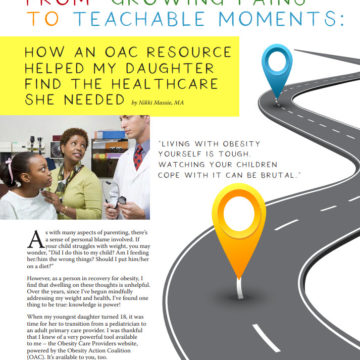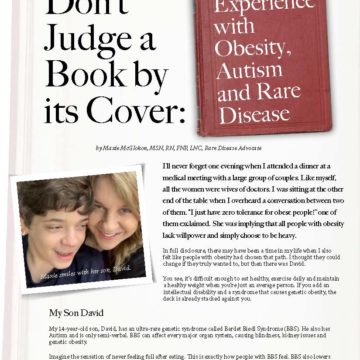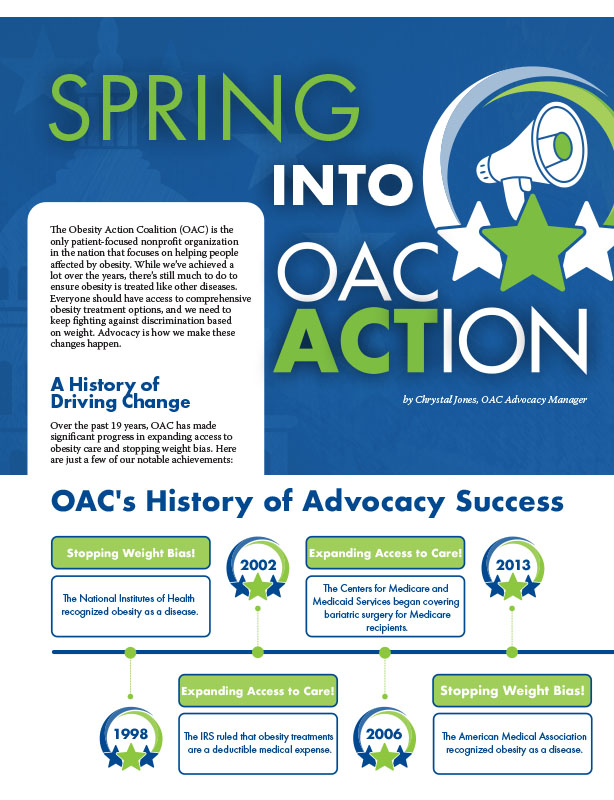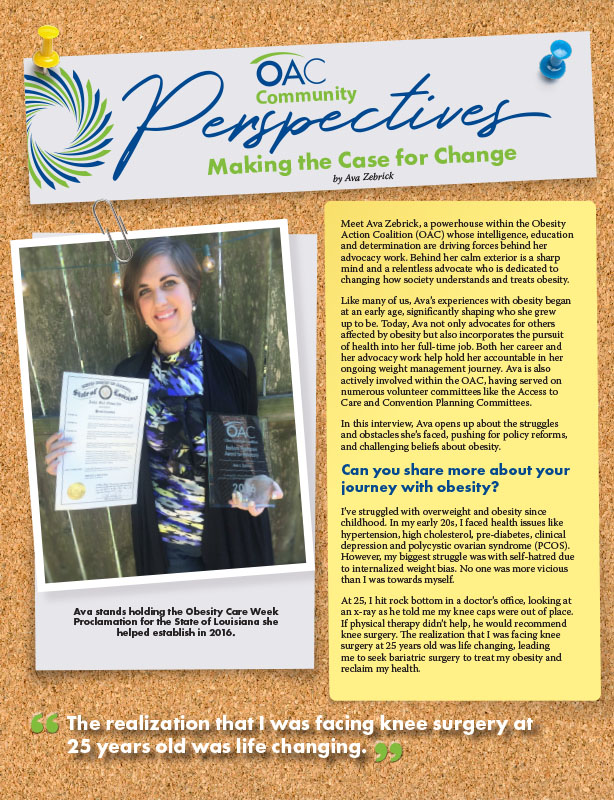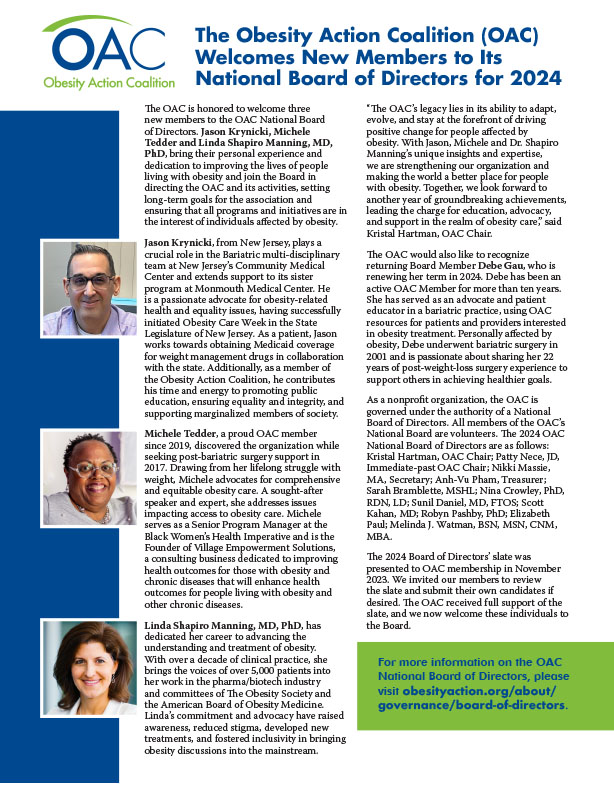OAC Community Perspectives: Changing the Narrative Around Weight, Bodies and Obesity

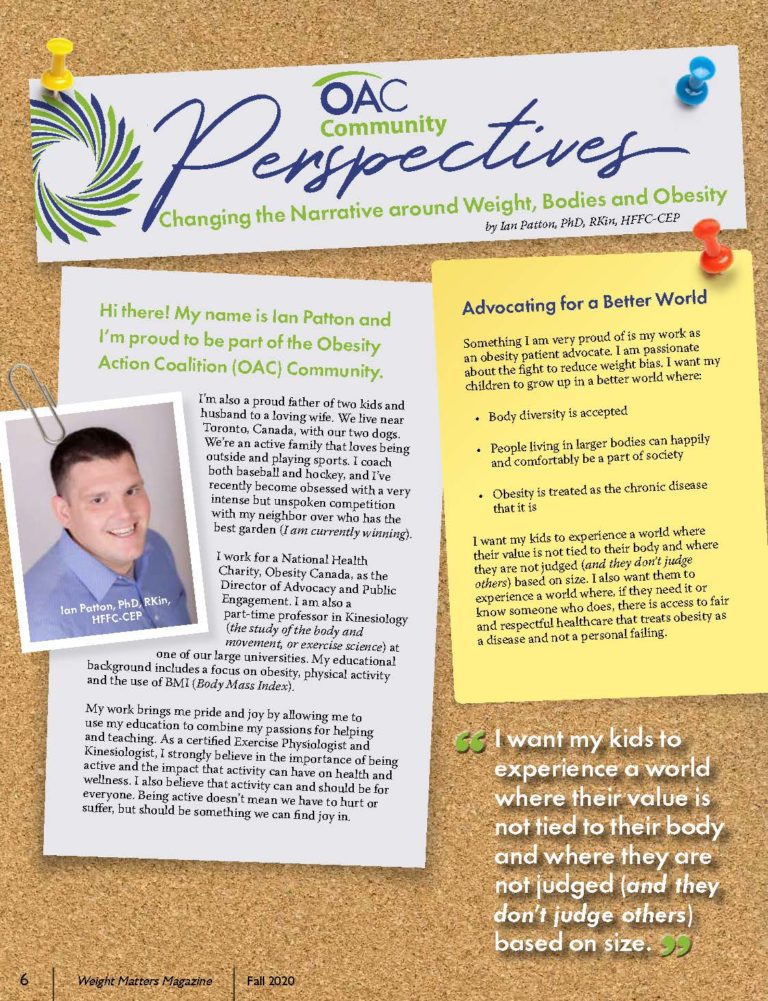
by Ian Patton, PhD, RKin, HFFC-CEP
Fall 2020
Hi there! My name is Ian Patton and I’m proud to be part of the Obesity Action Coalition (OAC) Community.
I’m also a proud father of two kids and husband to a loving wife. We live near Toronto, Canada, with our two dogs. We’re an active family that loves being outside and playing sports. I coach both baseball and hockey, and I’ve recently become obsessed with a very intense but unspoken competition with my neighbor over who has the best garden (I am currently winning).
I work for a National Health Charity, Obesity Canada, as the Director of Advocacy and Public Engagement. I am also a part-time professor in Kinesiology (the study of the body and movement, or exercise science) at one of our large universities. My educational background includes a focus on obesity, physical activity and the use of BMI (Body Mass Index).
My work brings me pride and joy by allowing me to use my education to combine my passions for helping and teaching. As a certified Exercise Physiologist and Kinesiologist, I strongly believe in the importance of being active and the impact that activity can have on health and wellness. I also believe that activity can and should be for everyone. Being active doesn’t mean we have to hurt or suffer, but should be something we can find joy in.
Advocating for a Better World
Something I am very proud of is my work as an obesity patient advocate. I am passionate about the fight to reduce weight bias. I want my children to grow up in a better world where:
- Body diversity is accepted
- People living in larger bodies can happily and comfortably be a part of society
- Obesity is treated as the chronic disease that it is
I want my kids to experience a world where their value is not tied to their body and where they are not judged (and they don’t judge others) based on size. I also want them to experience a world where, if they need it or know someone who does, there is access to fair and respectful healthcare that treats obesity as a disease and not a personal failing.
Struggling with Weight at a Young Age
I grew up as the “big kid.” Some of my peers went out of their way to make sure I was aware that I was “less than” because of my size. I experienced my fair share of teasing and bullying. Some of it was direct with the intent to be hurtful, but there was plenty more that was subtle – like the “playful” jokes of family and friends. Both hurt my feelings.
However, I admit that I had it a bit better than some of my peers when it came to isolation and trauma from bullying. I found sports where I could use my size as an advantage. I excelled in hockey, football, rugby, baseball and wrestling – all sports where being big was a good thing. Sports brought me a lot of confidence and valuable opportunities. Most importantly, it gave me friends. Sports isolated and protected me.
In my high school years, it became clear that my obesity was something I was supposed to try to change. I did a number of “diets” and exercise programs, and I even tried a bunch of fat-burning supplements to no avail. I gained and lost weight several times but it always came back. In university, that cycle continued. I got bigger and bigger, and I tried harder and harder to lose the weight.
The years I spent wrestling likely played a big role in my disease. In wrestling, you can gain an advantage by trying to be bigger than your opponents while still making the required weight class. To do this, we “cut weight.” The idea is that you weigh-in on Friday afternoon for a tournament on Saturday. Once you make weight, you can gain it back before the competition starts the next day. For me, this meant regularly gaining and losing 15-30 lbs. through dehydration, starving and bingeing.
Later on, injuries took me off the mat. I went from being a high-level athlete to being virtually sedentary, and the change was challenging. My weight skyrocketed when I added the stress of completing graduate school. By the time I was 30, I weighed more than 360 lbs. and was very sick. I had hypertension and sleep apnea, and I felt like the fat I was carrying was sucking the life out of me. I was distracted, unproductive and always tired. I had little to no motivation. Some days, I found it hard to breathe. Movement was difficult and painful.
Paving a New Path
As my wife and I started our family, I realized that I needed help if I wanted to be around for those I care about. I eventually chose bariatric surgery to help treat my obesity. After surgery, I lost a great deal of weight and resolved virtually all of my other health issues. I was finally able to be the energetic, productive father and husband I had always wanted to be. I started to enjoy life in a way I had not known before.
This, however, was just the tip of the iceberg. Surgery helped me get to a spot where I could be more successful in managing my health, but it was not a cure. I still needed to put the work in with:
- My head
- My relationship with food
- My emotions
- My environment
- My behaviors
Like many bariatric surgery patients, I experienced a period of regain. This is not uncommon as our bodies begin to adapt and resist weight-loss. I have since used several other tools to help me maintain control and reverse some of the regain, including:
- Cognitive behavioral therapy
- Medications
- Deep-diving into my relationship with food and addictive behaviors
Joining a Movement
My experiences, and the experiences of my peers, inspires me to be part of the movement that is fighting to change the narrative around weight, bodies and obesity. I am dedicated to making change – whether it’s representing the voices of individuals living with obesity in research projects, making sure their lived experiences are at the forefront of educating health professionals, or working with governments to shape policy around obesity.
I have also come to realize that obesity is a global issue. It is a diverse and complicated disease that impacts people all over the world in different ways. This is why I became involved with the new Global Obesity Patient Alliance (GOPA), of which the OAC is also a part of. I believe that we all have our own unique experiences, skills and knowledge, so I am always eager to learn from others. In GOPA, we get the opportunity to unite and share a global message. We amplify our skills and knowledge by sharing and learning from each other’s organizations. Together we are all stronger.
Building a Connected Community
Obesity Canada is in the process of developing our own vibrant community of empowered individuals that is similar to the OAC’s Community. This community – called “OC-Connect” – is a space for support, education and empowerment. The process has taught me the value in being honest and open with our experiences. However, it’s perhaps more valuable to recognize and reflect on how our personal experiences differ from others. The OAC has done a fantastic job of harnessing a community like this, and I’m grateful and honored to be a part of it.
Action is also important in these communities. We are going up against a well-established belief that obesity is simple and that the solution is tough love, shaming, and overly simplistic treatments. Many people simply don’t know the truth about obesity – and they never will know if we don’t take action together. This is why having a community like the OAC’s or OC-Connect is so important. We need a space to filter out the noise and raise our voices.
A Call to Action
As we’ve seen recently, grassroots movements have the power to influence change. I invite you to join these communities and me by taking specific actions you are comfortable with. Start small by sharing educational resources and have a conversation with friends, family and colleagues about obesity. Then, when you are ready, take the next step by getting involved in a campaign, writing a letter, signing a petition, speaking to your representatives or sharing your personal experiences. Collective action works. You can be part of something special.
Do You Want to Share Your Story?
Sharing your personal story and experiences can make a difference, inspire change, and support others in their health journeys. Visit the OAC’s dedicated story-sharing platform at WeightoftheWorld.com to share yours. We offer question prompts and ideas to help you get started.
If you would like your story to be featured in a future issue of Weight Matters Magazine, please email mburrows@obesityaction.org.
by Chrystal Jones, OAC Advocacy Manager Spring 2024 The Obesity Action Coalition (OAC) is the only patient-focused…
Read Articleby Ava Zebrick Spring 2024 Meet Ava Zebrick, a powerhouse within the Obesity Action Coalition (OAC) whose…
Read ArticleThe OAC is honored to welcome three new members to the OAC National Board of Directors. Jason Krynicki,…
Read Article




